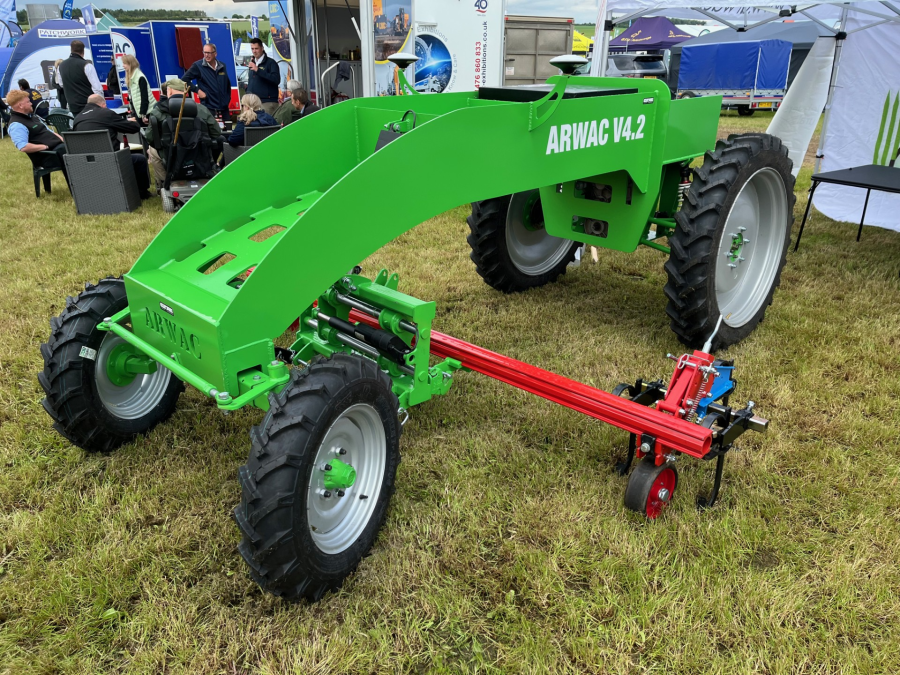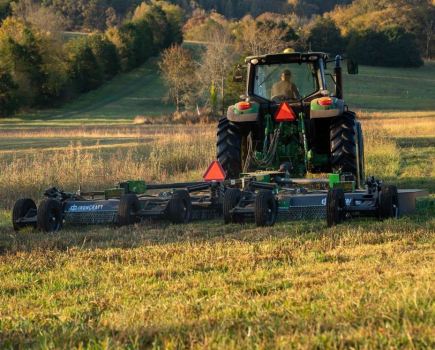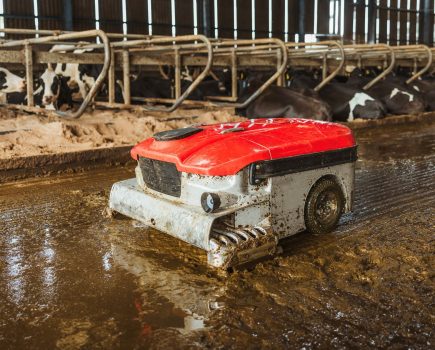Over the last three years a team at the University of Lincoln has been developing a battery-powered robotic tool-carrier capable of hosting a range of equipment but primarily operating with an inter-row hoe. With £2.5m of DEFRA and Innovate UK funding, the project’s goal is to help arable growers tackle the problems of herbicide-resistance grassweeds such as blackgrass. It is estimated that the average cost of weed control products in cereals stands at around £300/ha in blackgrass problem areas and then there’s the potential loss in yield.
The programme’s directors hope that by clawing some of this back (and by accessing the £150/ha available for mechanical weeding under SFI schemes), farmers have an opportunity to help improve margins as well as making a start on long-term improvements in the control of problem weeds.
The first prototype ARWAC (Autonomous Robotic Weeder for Arable Crops) was based around a miniaturised skid-steer platform but the second version did away with that moving to a two-wheel steer chassis with under-slung inter-row hoe. The third variant scaled things up with a 2.0m working width and this latest model now stretches to 3.0m.
With rear transaxles and diffs borrowed from golf buggies and ATVs, the units employ electric motors for propulsion and a lithium battery to provide up to 6.5 hours run time. The downside of this is that it then takes 12 hours to re-charge. We’re told the next version will be equipped with a 200cc diesel genset running a 48-volt system with balancing batteries to smooth out power demand.
With both a steered front axle and linkage side-shift, the autonomous machine relies on RTK-corrected GPS signals to work as close to the crop rows as possible with sub-7mm accuracy. Working at approximately 10km/hr it is hoped that in this year’s trials V4.2 will be capable of covering around 24ha/day.
The team believe the key attributes of adopting this type of approach are that it will enable growers to avoid delaying drilling to achieve stale seedbed weed control and potentially shorten rotations to once more include more profitable wheats rather than loss-making break-crops.
For more up-to-date farming news click here and subscribe now to profi and save 47%.





